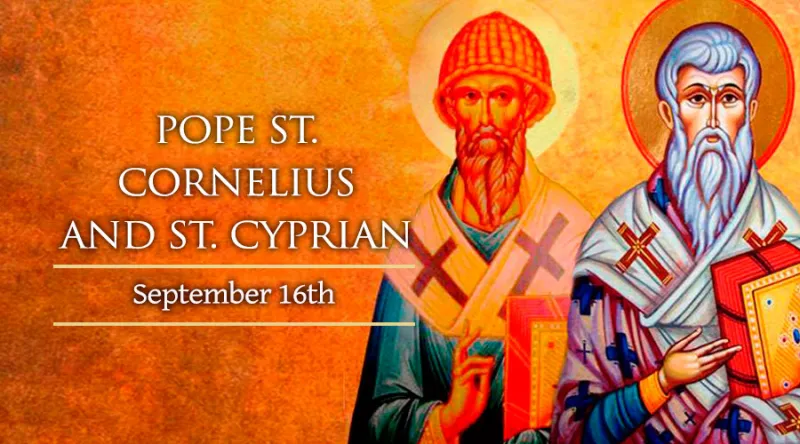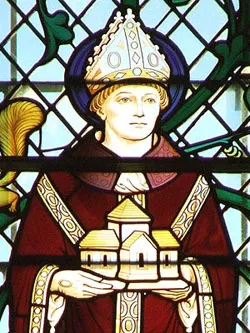St. Cornelius, Pope, Martyr and St. Cyprian, Bishop, Martyr

 St. Cornelius, Pope, Martyr and St. Cyprian, Bishop, Martyr
St. Cornelius, Pope, Martyr and St. Cyprian, Bishop, Martyr Feast date: Sep 16
Saint Cornelius was elected Pope in 251 during the persecutions of the Emperor Decius. His first challenge, besides the ever present threat of the Roman authorities, was to bring an end to the schism brought on by his rival, the first anti-pope Novatian. He convened a synod of bishops to confirm him as the rightful successor of Peter.
The great controversy that arose as a result of the Decian persecution was whether or not the Church could pardon and receive back into the Church those who had apostacized in the face of martyrdom.
Against both the bishops who argued that the Church could not welcome back apostates, and those who argued that they should be welcomed back but did not demand a heavy penance of the penitent, Cornelius decreed that they must be welcomed back and insisted that they perform an adequate penance.
In 253 Cornelius was exiled by the emperor Gallus and died of the hardships he endured in exile. He is venerated as a martyr.
Saint Cyprian of
Saint Cyprian was born to wealthy pagans around the year 190, and was educated in the classics and in rhetoric. He converted at the age of 56, was ordained a priest a year later, and made bishop two years after that.
His writings are of great importance, especially his treatise on The Unity of the Catholic Church, in which he argues that unity is grounded in the authority of the bishop, and among the bishops, in the primacy of the See of Rome.
In, “The Unity of the Catholic Church,” St. Cyprian writes, “You cannot have God for your Father if you do not have the Church for your mother…. God is one and Christ is one, and his Church is one; one is the faith, and one is the people cemented together by harmony into the strong unity of a body…. If we are the heirs of Christ, let us abide in the peace of Christ; if we are the sons of God, let us be lovers of peace.”
During the Decian persecutions Cyprian considered it wiser to go into hiding and guide his flock covertly rather than seek the glorious crown of martyrdom, a decision that his enemies attacked him for.
On September 14, 258, however, he was martyred during the persecutions of the emperor Valerian.
![]()
Saint of the Day – rosary.team
















